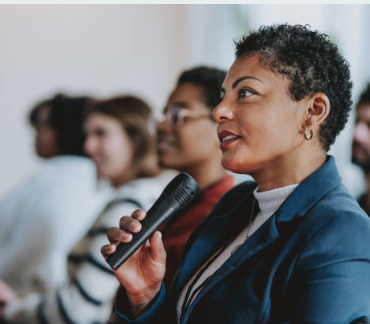The clean energy transition will only succeed if it’s affordable and accessible to everyone. A recent webinar hosted by Environmental Law Institute and Environmental Defense Fund, Community Lawyering for Environmental Justice, Part 13: Energy Affordability & the Power of Community, brought together lawyers, community advocates and technical experts to tackle a pressing question: how do we reduce energy burdens and ensure equity in policy and practice?
Real Stories Can Create Real Impacts
Speakers at the webinar stressed one truth: meaningful community participation leads to stronger, more just outcomes. Testimony from people suffering high energy costs and dirty air does more than humanize statistics—it can change regulators’ decisions.
Inequities abound in energy systems. As our panelist Justin Schott pointed out, about 20% of the money utilities collect from customers goes straight to shareholders, while nearly half of families with children under five face shutoffs. Yet just $3.15 more per month from those who can afford it could cover the energy costs of households in the hardest-hit neighborhoods. Schott told a powerful story about a utility cutting off a woman’s electricity the day after she gave birth. She had applied for a medical exemption, but “birth” wasn’t recognized on the shutoff exemption list.
Break Down Barriers
Energy regulatory proceedings often favor well-resourced parties, and community members need more than an invitation to participate. They need resources and preparation. Lawyers and technical experts can help frame complex issues, allowing community perspectives to enter the legal record and affect big decisions.
Tools like intervenor compensation—where intervenors representing community interests may get reimbursed for their time and costs—help balance power. True procedural fairness means more than accepting public comments. It requires scheduling hearings at accessible times, providing translation and interpretation, and simplifying technical materials. These supports can break down the barriers that often exclude communities most affected by high energy costs from shaping the policies that govern them.
Use Expertise Strategically
Using data and technical analysis, experts can quantify energy burdens, model policy impacts and strengthen legal arguments. But their most valuable role may be empowering communities with the information they need to advocate effectively. Experts should serve the community’s case, driving a more holistic vision of an affordable energy system that serves all of its stakeholders. Recognize that community experts have expertise of their own to share.
Target Energy Burden Directly
The webinar underscored that equity must focus on energy burden—the share of household income spent on energy bills. Families in marginalized communities often pay disproportionately high percentages of their income for basic power. Policies that states have adopted to directly reduce energy burden include rate structures that lower costs for low-income households, humane shutoff protections, and energy efficiency upgrades for older, inefficient housing stock. Addressing energy burden explicitly ensures policies reach those most in need.
Build Coalitions
Energy affordability is a cross-cutting issue tied to housing, health, and climate justice. That’s why coalitions matter. When legal advocates, community groups, utilities and governments work together, they amplify each other’s voices and listen to each other’s needs. Strong partnerships increase the odds of winning durable policy change.
Webinar speaker Mary Wambui shared how her personal struggles inspired her advocacy, and how her testimony in a case helped shape the outcome. She also showed a photo of a geothermal pump, and recounted how the utility withdrew its plan for a geothermal network in her Lowell MA neighborhood after bypassing community consultation and with no transparency. Mary also emphasized that for advocates too, getting to know the community is the first step toward making change.
What This Means for Our Work
Utilities, regulators, advocates and communities acting together can make energy more affordable and equitable. Environmental Defense Fund is showing up in front of regulators, advocating with utilities, and enabling community members to participate as expert witnesses. We are encouraging more lawyers to represent community witnesses in energy cases throughout the U.S., and getting the message out that enabling community participation in decisions is essential for a clean, affordable energy future. By taking these steps, we are ensuring energy systems deliver real benefits where communities need it most.
Make Energy Work for Everyone
Energy affordability is not a side issue—it’s central to reducing poverty and advancing the clean energy transition. This webinar made clear that centering communities, removing barriers and designing durable policies are essential. If we commit to these principles, we can build an energy system that is not only cleaner, but fairer for everyone.
Watch the recording of this webinar here.




